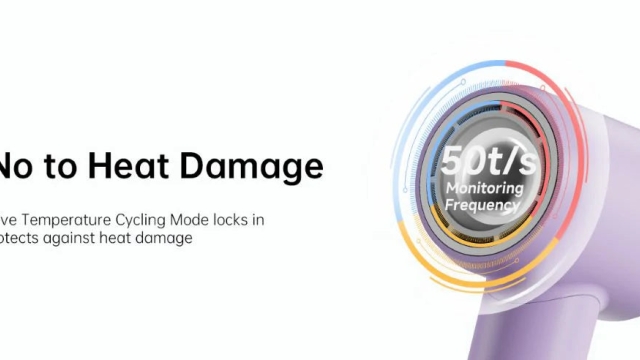
In every household, appliances play a crucial role in making our daily routines smoother and more efficient. From washing clothes to preserving our food, these machines are essential for modern living. However, wear and tear can lead to unexpected breakdowns, leaving us feeling frustrated and overwhelmed. Rather than rushing to replace items that may still have plenty of life left, consider the rewards of repairing your appliances.
Whether you are dealing with a stubborn washer that won’t spin, a dryer that has lost its drying power, a refrigerator that no longer keeps things cold, or a dishwasher that just won’t clean properly, often simple fixes can breathe new life into these machines. With expert repair tips, you can confidently tackle common issues, save money, and help the environment by reducing waste. Let’s explore how you can become the household hero who revives these essential appliances, ensuring they continue to serve your home for years to come.
Washer Troubleshooting
When your washer starts to act up, it can be frustrating, but many common issues can be resolved with a bit of troubleshooting. First, check the power supply. Ensure that the washer is plugged in securely and that the circuit breaker hasn’t tripped. If it seems like the machine won’t turn on at all, check for loose connections or frayed cords. A simple reset can sometimes do wonders, so try unplugging the washer for a few minutes before plugging it back in.
Another frequent issue is excessive vibration or noise during the spin cycle. This can often be traced back to an uneven load. Make sure to distribute the clothes evenly in the drum and avoid overloading the washer. If the problem persists, check the feet of the washer to see if they are properly adjusted and flat on the ground. Sometimes, placing a level on the machine can help you identify if it’s balanced correctly.
Water drainage problems are also common in washing machines. If you notice that water is not draining properly after a cycle, it might be a clogged drain hose or filter. First, inspect the drain hose for any kinks or blockages. You should also clean the lint filter according to the manufacturer’s instructions. If these steps don’t solve the problem, the issue might lie within the pump itself, which may require further examination or professional assistance.
Dryer Fixes
A common issue with dryers is insufficient heat, which can lead to clothes coming out damp even after a full cycle. Start by checking the lint filter and exhaust vent for clogs, as blocked airflow can hinder performance. Cleaning the filter after every load and regularly inspecting the vent for lint buildup can make a significant difference. If the dryer still isn’t heating, it may be worth examining the heating element or thermostat, which can often be replaced with minimal tools.
Another frequent problem is the dryer not spinning. This can be caused by a jammed drum or a defective drive belt. Begin by emptying the dryer and checking for items that might be stuck. If the drum isn’t turning, inspect the belt for breakage or wear. Replacing the belt is a straightforward job, usually requiring only a screwdriver to remove the dryer’s cover and gain access.
Lastly, if your dryer is making unusual noises, it could indicate worn-out rollers or bearings. Listen for any grinding or squeaking sounds that may worsen during operation. Diagnosing the source of the noise can involve opening the dryer panel and visually inspecting the drum’s components. In many cases, replacing worn parts can restore quiet operation and extend the life of your appliance. Regular maintenance and timely repairs can keep your dryer running smoothly for years to come.
Refrigerator Repairs
Reliable washer repair in Miami
When your refrigerator starts acting up, the first step is to identify the problem. Common issues include an unresponsive cooling system, strange noises, or leaking water. Check the temperature settings to ensure they are correct, and examine the door seals for any damage, as these can significantly affect performance. If the refrigerator is not cooling properly, inspect the condenser coils for dust buildup, as a clean coil allows for better heat dissipation.
If your refrigerator is noisy, it may be a sign of a failing evaporator fan or compressor. Listen carefully to determine the source of the noise, as different sounds can indicate specific issues. A humming or buzzing sound may suggest the compressor is working harder than normal, while rattling could indicate loose parts. Addressing these noises early can prevent more significant issues down the line.
For water leaks, check the defrost drain and door seals, which are common culprits. A clogged defrost drain can cause water to pool inside the refrigerator, while damaged seals can allow warm air in, leading to excessive condensation. Simple fixes such as clearing the drain or replacing seals can help restore your refrigerator to its optimal condition and prolong its lifespan.
Dishwasher Solutions
When your dishwasher is not cleaning dishes effectively, it can be frustrating. Start by checking the spray arms for clogs or obstructions. Remove them if necessary and rinse under warm water. Additionally, ensure that the dishwasher is loaded correctly, as overcrowding can prevent proper water circulation. Regularly cleaning the filter will also help maintain optimal performance.
If your dishwasher is leaking, inspect the door seals and gaskets for any signs of wear or damage. A worn seal can allow water to escape during cycles. Tightening loose connections on the water supply line and ensuring that the dishwasher is level can also prevent leaks. If you notice water underneath the dishwasher, check the drain hoses for kinks or blockages that could cause drainage issues.
Should your dishwasher fail to drain properly, begin by checking the drain filter and removing any debris. A faulty drain pump could also be the culprit; you may need to test it for continuity with a multimeter. If your dishwasher is still not draining, consider inspecting the plumbing connected to the dishwasher for any blockages. Addressing these common issues can help restore your dishwasher’s functionality and efficiency.
Oven and Disposal Tips
When dealing with an oven that is not heating properly, the first step is to check the power source. Ensure the oven is plugged in and the circuit breaker hasn’t tripped. If it’s an electric oven, inspect the heating elements for any visible damage. A faulty heating element can be replaced with a few tools and some basic electrical knowledge. For gas ovens, ensure the gas supply is on and check the igniter for function.
If your oven is producing strange noises or odors, these could indicate issues with the fan or other internal components. Cleaning the oven thoroughly, including the fan, may resolve any unusual smells. For persistent issues, consider consulting your appliance manual for troubleshooting tips specific to your model. Regular maintenance, like cleaning the burners, can also keep your oven working efficiently.
For garbage disposals, a common problem is clogs. If your disposal is jammed, turn it off, and try using a wrench to manually turn the disposal unit. You can also use a wooden spoon handle to help dislodge any stuck food particles. Avoid putting hard materials down the disposal, as they can break the blades. For bad odors, grinding ice cubes and citrus peels can help freshen the unit and keep it clean.



